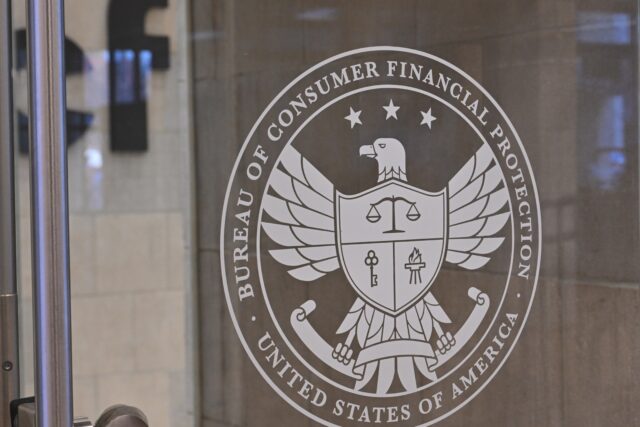Bankruptcy is a legal process through which people, companies, and organizations seek relief from the outstanding debts they owe their creditors. Bankruptcy law implicates themes of forgiveness, redemption, and redistribution. Historically, it has sought to reconcile policy considerations that are often in tension: giving a fresh start to debtors while ensuring creditors receive what they’re owed.
Drafted in the 1970s, the United States Bankruptcy Code establishes procedures and rules to balance the conflicting interests of debtors and creditors. Chapter 11 bankruptcy lets individuals and businesses with debts above a certain amount stay afloat and pay creditors over time. Once an entity files for Chapter 11 bankruptcy, it benefits from an “automatic stay” on assets, which immediately pauses all creditor action to collect debts, including lawsuits.
The automatic stay was designed to prevent a race to the courthouse among creditors, who may rush to sue to make sure they can recover outstanding debt before money runs out. In theory, the stay encourages creditors to cooperate and enables debtors to create an effective payment plan. In reality, however, corporate defendants exploit the automatic stay as a loophole to escape potentially costly litigation. This feature of bankruptcy has become “a malicious incentive for solvent corporations to file, and thus skirt liability that they would otherwise face.” Although companies traditionally considered bankruptcy a last resort, they are increasingly filing for Chapter 11 to benefit from the automatic stay. The trend is especially pronounced in mass tort litigation— cases where many people are harmed in a similar way by a similar actor.
In addition to the automatic stay, Chapter 11 gives nondebtor third parties (those affiliated with the entity filing for bankruptcy who may also be liable for the harm at issue) a shield against current and future litigation. Nondebtor liability releases emerged in the 1980s as a tool to handle a massive influx of asbestos lawsuits. Manufacturer Johns-Manville declared bankruptcy and created a trust to compensate asbestos victims. Johns-Manville’s insurers contributed $770 million to the trust in exchange for nondebtor releases that insulated them from asbestos lawsuits. The nondebtor releases served to prevent claimants from collecting twice, through the trust and a separate insurance claim. In 1994, Congress amended the Bankruptcy Code to allow nondebtor releases in asbestos litigation.
Since then, businesses and their corporate lawyers have aggressively extended the application of nondebtor releases. They’re now a ubiquitous part of bankruptcy proceedings. According to a Reuters review of 626 bankruptcy cases compiled by BankruptcyData, judges approved nondebtor releases in 90% of the largest U.S. bankruptcy filings completed between 2012 and 2021. Bankruptcy scholar Lindsey Simon calls these solvent, nondebtor entities that take advantage of third party releases “bankruptcy grifters,” which “act as parasites, receiving many of the substantive and procedural benefits of a host bankruptcy, but incurring only a fraction of the associated burdens.”
Taken together, automatic stays and nondebtor releases extinguish legal claims against corporate defendants and their affiliates. The only option left for claimants is to pursue a payout from trusts created by Chapter 11 filings. But the companies that file for bankruptcy are typically the ones that get to make the rules that govern their trusts, including their evidentiary standards, appeals processes, claims-payment regimes, and arbiter selections. Claimants are lucky if they get to recover anything at all.
Recent high-profile cases illustrate how corporate defendants exploit bankruptcy law to outmaneuver claimants seeking redress.
Product Liability Cases
Over the past five years, companies have weaponized Chapter 11 bankruptcy to defend themselves from product liability litigation—lawsuits to compensate consumers for injuries caused by dangerous products. Two perverse innovations in bankruptcy law have immunized corporate actors in the product liability context: nonconsensual nondebtor releases and the Texas two-step.
Nonconsensual nondebtor releases forcibly bind claimants to bankruptcy settlements that grant immunity to third parties. These releases enable the executives responsible for a company’s decision-making to hide behind its bankruptcy. Nonconsensual nondebtor releases have taken center stage in the fight to hold opioid suppliers accountable.
The opioid epidemic led to extensive litigation against the companies who fueled this public health crisis for profit. Faced with mounting legal liability, prominent pharmaceutical companies Purdue Pharma LP and Mallinckrodt PLC declared bankruptcy to extinguish the opioid lawsuits against them and shield their executives from liability. The billionaire Sackler family that ran Purdue Pharma has offered to contribute $6 billion to Purdue’s trust, “but if—and only if—every member of the family could ‘achieve global peace’ from all civil litigation.” Mallinckrodt chief executive Mark Trudeau paid nothing to Mallinckrodt’s trust but received a nondebtor release anyway, preventing claimants from pursuing any claims against him.
Another bankruptcy maneuver designed to skirt accountability is a strategy called the “Texas two-step.” First, a company splits itself into two entities (a parent company and a subsidiary) and offloads its legal liability onto the subsidiary. Then, the parent company has the subsidiary declare bankruptcy. This tactic allows corporate defendants to reroute lawsuits against them to bankruptcy court, where they get the benefits of bankruptcy protection but none of the reputational or financial drawbacks. The company get to ditch pesky lawsuits, keep its assets, and go about business as usual.
Johnson & Johnson has come under fire for its recent use of the Texas two-step. Over the past twenty years, the company has faced a rising wave of lawsuits concerning its talc baby powder. Plaintiffs allege that it contains traces of asbestos that gave them (or their deceased loved ones) ovarian cancer. Johnson & Johnson went to trial and lost big in several cases, with compensatory damage awards ranging from $5 million to $70 million and punitive damages ranging from $50 million to $347 million. So, in October 2021, Johnson & Johnson dumped its talcum liability into a subsidiary called LTL Management, which declared bankruptcy just three days later. Johnson & Johnson emerged scot-free with tens of billions of dollars in assets and none of its talc liabilities.
While courts determine whether this tactic is legal, the lawsuits seeking to hold Johnson & Johnson accountable are frozen in limbo. Journalist Casey Cep noted that in the eleven months after Johnson & Johnson’s subsidiary filed for bankruptcy, “an average of one woman a day has died waiting to find out if her case against the company would ever be heard.”
The harms inflicted by bankruptcy in the product liability context are twofold. First, people who have been harmed by dangerous products are denied justice, forced into settlements designed to limit their recovery and to shield those responsible. Second, the fact that companies can evade liability for dangerous products diminishes their incentives to address potential safety hazards. Bankruptcy maneuvers like nonconsensual nondebtor releases and the Texas two-step exacerbate these harms and corrode consumer protection.
Sexual Abuse Cases
Cancer patients and families wrought by the opioid epidemic are not the only victims of strategic corporate bankruptcies. Companies use bankruptcy to shut the door on sexual abuse victims too. Organizations that face lawsuits for enabling abuse have increasingly turned to bankruptcy to limit their legal liability. In this context, bankruptcy compounds the very same misconduct at issue in sex abuse litigation—institutional dismissal of survivors that excuses and perpetuates abuse.
Bankruptcy compounds the very same misconduct at issue in sex abuse litigation—institutional dismissal of survivors that excuses and perpetuates abuse.
When USA Gymnastics filed for bankruptcy, an automatic stay froze over 100 lawsuits by current and former gymnasts alleging that the organization had failed to properly investigate claims of Larry Nasser’s abuse. Settlement negotiations lasted for three years, during which survivors were “trapped in a tangled web of disputes involving USA Gymnastics, its insurers, and the United States Olympic and Paralympic Committee.” At one point in the process, survivors tried to dismiss USA Gymnastics’ bankruptcy petition on the grounds that the organization hadn’t been negotiating in good faith. A bankruptcy settlement was finally reached in 2021, and shortly thereafter USA Gymnastics emerged from bankruptcy to continue its control over the destinies of young gymnasts.
Boy Scouts of America also faced a fraught bankruptcy settlement process. Georgetown Law professor Adam Levitin noted that an estimated 40,000 troop sponsors—including municipalities, community organizations, schools, and churches—clamored to receive nondebtor releases. They all sought to limit their own liability for the sexual abuse of Boy Scouts from 1976 onward. All but one of these troop sponsors secured third party liability releases, enabling them to reap the benefits of Boy Scouts’ bankruptcy without actually having to pay a penny of their own money. The one troop sponsor that was denied a third party liability release was the Church of Jesus Christ of Latter Day Saints, which tried to pay $250 million to the settlement fund in exchange for broad legal protections from all sex abuse claims, not just those involving Boy Scouts.
Two years after Boy Scouts of America declared bankruptcy, a judge approved the settlement agreement. A group of insurers responsible for compensating claimants is now trying to challenge the settlement on the grounds that “a significant portion” of the 82,000 claims are “likely fraudulent.” Even after reaching a settlement, legal challenges by insurers force claimants to fight tooth and nail to receive compensation.
The Weinstein Company bankruptcy also involved a bitter fight over nondebtor releases. Former board members and company officials wanted releases granting them lifetime immunity for Weinstein’s abuse. And they got them, over the objections of four women who planned to hold board members accountable for enabling Weinstein. Not only did the settlement agreement force claimants to accept the third party liability releases, but it also strong-armed them into releasing Weinstein himself from liability. If they opted not to, their payout from the settlement would have been reduced by 75%. One woman who had planned to sue the company’s board members told Reuters that the bankruptcy settlement made her feel “like I was being coerced into something once again.”
In each of these cases, those complicit in pervasive sexual abuse have used bankruptcy against survivors. Automatic stays effectively extinguished all existing and future sex abuse lawsuits against USA Gymnastics, Boy Scouts of America, and the Weinstein Company. Nondebtor liability releases extended this legal immunity to the people responsible for the decision-making of these organizations, as well as other organizations that helped enable the abuse.
Bankruptcy closes door after door to survivors, until their only remaining option for recourse is a coercive settlement agreement. Even if survivors are able to negotiate the agreement in their favor, insurers often fight to get out of paying. This process systematically delays and denies survivors compensation. In the end, bankruptcy imposes yet another series of barriers in the path of survivors who seek healing and justice.
![[F]law School Episode 9: Profits Over Patients](https://theflaw.org/wp-content/uploads/2024/12/danie-franco-CeZypKDceQc-unsplash-scaled-e1735518825718-640x427.jpg)







